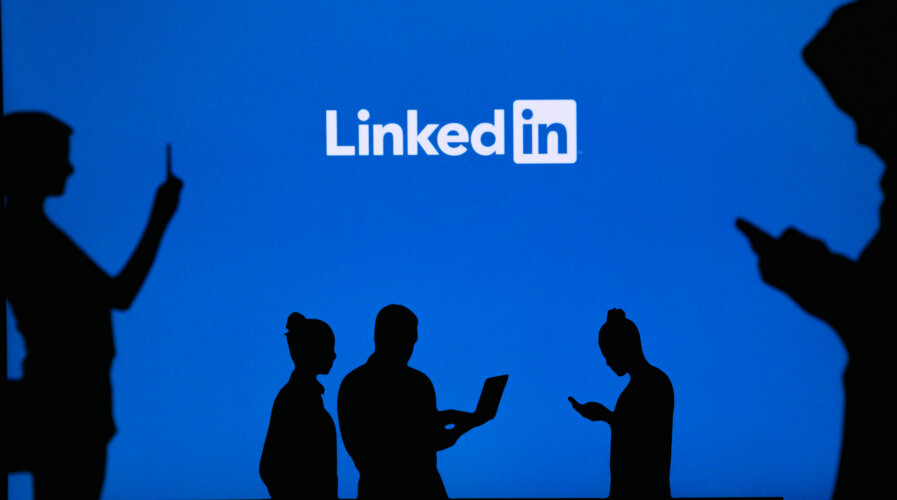
LinkedIn: Three key trends influencing jobseekers
In the hunt for talent today, understanding the needs of jobseekers is key to filling skills shortages quickly and efficiently. Businesses no longer have the luxury of waiting to pick the perfect candidate. Instead, job-seekers are now the ones making the final decision on whether they want to work with a particular organization or not.
Millennials and Gen-Z have taken over the working world. Organizations that do not take their demands seriously today are going to struggle in improving their productivity and increasing their efficiency and profits.
In fact, businesses looking to build their talent today can no longer use traditional hiring methods to get their ideal employee. Technology has enabled the hiring process to be perfected, especially with artificial intelligence (AI) giving employers a boost in picking candidates. Yet many businesses are still struggling to meet the demands of the modern workforce, despite acknowledging the importance of meeting their demands.
The demand for skills and its shortage has led to recruiters using various tactics to headhunt and employ new workers. At the same time, online job portals have mushroomed all over the web. But a concern that comes from this is also the increasing number of job scams that many jobseekers are falling victim to.
LinkedIn, which has revolutionized the way the world connects to opportunity over the past two decades, also faces the problem of job scams. However, the company continues to innovate ways to deal with such scams on its site.
Despite this, over 700,000 companies today use LinkedIn Talent Solutions to find, source and hire talent. Statistics show that LinkedIn members submit 117 job applications every second and 8 people are hired every minute through it.
“As the labor market continues to evolve, we are already seeing a few key shifts – toward values and skills, especially in the area of AI. We must rethink our business strategies so that we can not only attract talent with the skills we need but also retain them, and keep them engaged and motivated. This is how both companies and professionals can win together in the future world of work,” commented Feon Ang, Managing Director for Asia Pacific.
LinkedIn also recently announced that it will using AI-powered tools to help organizations find qualified candidates faster.
“Now with AI-powered job descriptions, all job posters need to do is provide starter information – like job title, company name, workplace type, job type, and location – and a draft description will be created for the poster to review and edit. We’re also giving hirers the opportunity to enhance their job description by choosing someone in their network who has similar skills to what they’re looking for in their next hire and incorporating these skills into the job description with one click,” explained Hari Srinivasan, VP of Product at LinkedIn in a post.
Trends influencing jobseekers
According to LinkedIn data, three key trends are influencing how talents pick their jobs today. For Gen-Zs and millennials, it is no longer just about getting a job to pay bills. They want a career that can meet their demands.
As such, LinkedIn’s data showed that jobseekers are now looking for jobs that align with their values. Globally, a majority of workers in India (87%), Singapore (77%), Australia (74%), and the US (71%) believe that it’s now more important to work in a company that demonstrates a commitment to the culture and values they support and believe in. Many also agree that they would prioritize culture and values over salary. This is a significant shift, compared to 20 years ago.
Across the Asia Pacific (APAC), job posts focusing on culture, flexibility, and well-being see significant growth in views and applications. In Australia, job applications for posts mentioning culture grew 2.09x more than jobs that didn’t. In India, this is at 1.19x and in Singapore, 1.40x. To support both companies and workers, LinkedIn is rolling out a new job search filter so professionals can easily search for open roles based on an organization’s commitment to values such as work-life balance, diversity, equity and inclusion (DEI), career growth and learning, social impact and environmental sustainability.
Apart from values, another trend is skills, which are quickly becoming the currency in the future world of work. Skills in APAC are changing at a faster pace than they are globally (by 25% since 2015). In Australia, the skill sets for jobs have changed by around 26.66% since 2015. This number is 29.63% in India, and 35.66% in Singapore. Professionals agree that skills are more valuable than degrees as compared to 20 years ago (India: 84%; Singapore: 73%; Australia: 63%). LinkedIn members have added over 380 million skills to their profiles over the past year, signifying a 40% increase year-over-year. Today, 45% of hirers on LinkedIn are also explicitly using skills data to fill their roles.
Finally, jobseekers are embracing technology to advance their careers. The opportunities and the growth of AI talent in the workforce have been exponential since 2016, with India experiencing a 487% increase; Singapore at a 565% increase and Australia at a 527% increase.
Looking across some of the key economies in APAC, the top three AI skills are: Australia: Machine Learning, AI, Deep Learning
- India: Machine Learning, Data Structures, AI
- Indonesia: Machine Learning, AI, Deep Learning
- Japan: Machine Learning, AI, Deep Learning
- Singapore: Machine Learning, AI, Deep Learning
As the demand for skills continues to increase, organizations will have to do their best in ensuring they can meet their employee demand. Be it increasing the use of technology, flexible working hours or sustainable working models, catering to this will bring them a step closer to fulfilling their job vacancies.
READ MORE
- 3 Steps to Successfully Automate Copilot for Microsoft 365 Implementation
- Trustworthy AI – the Promise of Enterprise-Friendly Generative Machine Learning with Dell and NVIDIA
- Strategies for Democratizing GenAI
- The criticality of endpoint management in cybersecurity and operations
- Ethical AI: The renewed importance of safeguarding data and customer privacy in Generative AI applications


